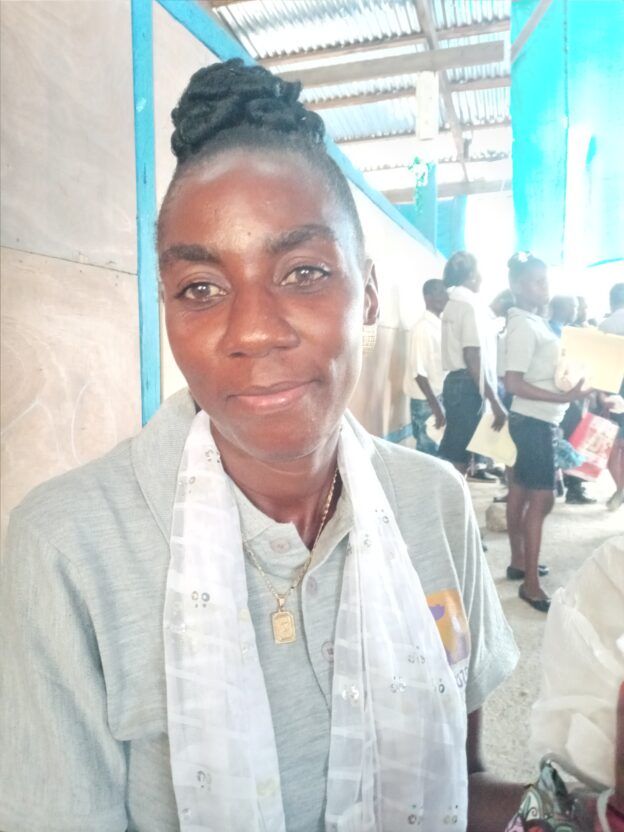Phicianie lives with her partner and their six children in Vadens, a rural area outside of Gwomòn. The years before she joined the program were difficult. Her house burned down in a fire caused by a kerosene lamp that turned over. She spent four months sleeping with her children under the thatch roof covering the cauldron used at a sugar mill to boil the cane juice down to syrup. The roof had no walls. The floor was a mixture of molasses, straw, and mud.
She would go to Gwomòn a couple of times a week to make a few gourds. For 50 gourds – less than a dollar – she could buy little bags of water. When she sold out, she’d have 25 gourds of profit. If, that is, she didn’t get hungry or thirsty enough to need something herself. Her partner would work day-labor in their neighbors’ fields. “We couldn’t keep the kids fed, we couldn’t send them to school, and we couldn’t buy sandals for their feet.”
When she joined CLM, she asked the team for a goat, a pig, and small commerce. Even a year earlier, a request like that would have been hard to fulfill. Until recently, members received two different kinds of assets, not three. But the CLM changed the way it helps members make these choices. Rather than presenting a fixed menu of two-asset combinations, it talks to members about the amount that they can spend. Each member figures out what she would like do with the money by talking it over with her case manager.
Phicianie took 2000 gourds worth of commerce. She sells limes or sour oranges, the citrus that Haitian cooks use to prepare meat. She goes to market, where she buys as much as she can with the money she has, and she divides it into smaller piles, which she sells to the people who will consume the fruit. The simple business works, and it brings in a small but steady stream of income.
The team also gave her a single, small nanny-goat. After two litters, that one goat is now five. She used savings from her cash stipend and some earnings from her business to buy a second goat, and it too is now five. In all, she has ten goats now.
Finally, the team gave her a sow. After two litters, she has ten pigs too, but she will start to sell some of them off soon. She wants to put the money together to buy a cow.
And Phicianie hasn’t just gotten wealthier. Her life and her family’s life has gotten better. They have their own house now. “My children go to school, and I feed them well.”

Wow! What a wonderful Thanksgiving story to read on an otherwise lonely day. I don’t believe I have seen any story as promising as this one. This seems like a woman who can continue an upward trajectory well into the future. What about her partner? Is he doing well too and helping her with all her livestock. I sure hope so.